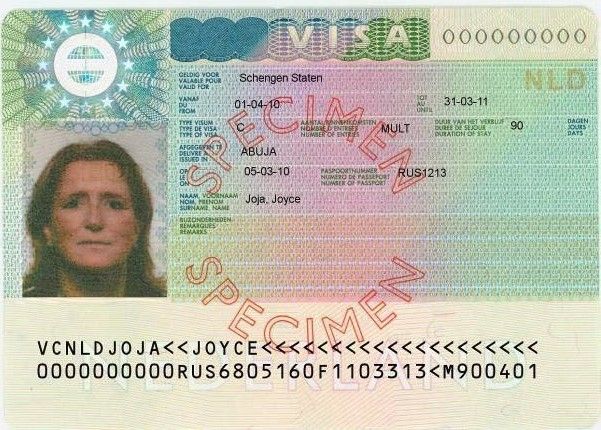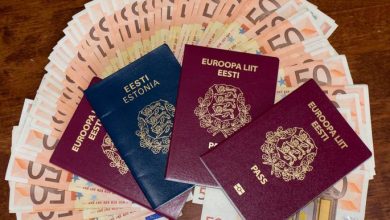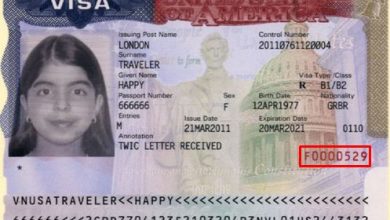Schengen visas begin to apply for new rules
The new visa code for the countries participating in the Schengen Agreement comes into force. According to European diplomats, changes in the procedure for processing documents should not only unify the rules for issuing Schengen visas worldwide, but also greatly simplify the process.
The new legislation represents the general procedures and conditions for issuing short-term visas (for a period of not more than three months) for the Schengen member countries. Decisions to issue long-term visas remain the responsibility of the consulate of the country through which the visa is issued.
What will change
The Code was approved by the EU Council in June 2009. According to the new instructions, the rules for submitting documents are now unified – regardless of which Schengen visa is issued through the consulate of which country.
In particular, the application has now become the same for the consulates of all countries, and, in addition, to obtain a visa at any of the consulates, it is necessary to provide the same package of documents.
The cost of a Schengen visa for citizens of third countries from the age of 12 is 60 euros per person, and for children from six to 12 years old – 35 euros. For Russia, as for all states that have agreements on visa facilitation with the EU, the cost of a visa remains the same – 35 euros.
The application review period will now not exceed 10 days. In case of refusal to issue a visa, the consular services must justify the decision, and the applicant is given the right to appeal it. In addition, the possibility of introducing in the future an online document processing system is also being considered in European circles.
According to the European Commission, in 2008, Schengen countries issued over 10 million short-term visas.
Russia is ready to abolish visas
Interlocutors in European diplomatic circles argue that for Russians, changes in connection with the new code will be minimal, since the EU’s policy regarding the visa regime with Russia has always been to simplify it, and subsequently cancel it.
The first deputy chairman of the Duma committee on international affairs, Leonid Slutsky, also spoke about this earlier. He expressed hope that Russia and the European Union would come to an agreement on a visa-free regime within a short period of time – a year or two. The Russian side, according to him, has long been ready for this step.
The EU Delegation to Russia in an official press release notes that the agreement between the EU and Russia on visa facilitation, which entered into force on June 1, 2007, continues to be valid. In particular, it establishes a simplified procedure for registration of members of official delegations, journalists, entrepreneurs, businessmen, drivers and members of train crews, scientists, cultural and educational workers, schoolchildren, students and graduate students, athletes, as well as participants in exchange programs between twin cities .
The list of countries applying a common visa policy includes EU member states except Great Britain and Ireland, as well as countries that are members of the Schengen area but are not EU members (Iceland, Norway and Switzerland). “Bulgaria, Romania and Cyprus will begin to apply the visa code as soon as they become part of the Schengen zone without maintaining internal borders,” the EU representative said in a statement.
The new visa code for the countries participating in the Schengen Agreement will enter into force on April 5. According to representatives of the European Commission, changes in the procedure for paperwork should not only unify the rules for issuing Schengen visas around the world, but also greatly simplify the process. Moreover, as noted by European diplomats, for Russian citizens the changes will be minimal.
According to the code, the rules for submitting documents will be unified, regardless of which Schengen visa is issued through the consulate of which country. In particular, the questionnaire will be the same for consulates of all countries, and, in addition, for obtaining a visa at any of the consulates it will be necessary to provide the same package of documents. If the consulate refuses to issue a visa, it will have to explain the reason.
Visa Cancellation Course
Denis Daniilidis, press officer of the European Union’s representative office in Russia, said that it’s wrong to talk about complicating the rules for issuing visas. According to him, we are talking about bringing the system to a single standard.
“For Russia, our goal has always been to simplify the visa regime, and subsequently to abolish it. We have our own planned course for this,” Daniilidis said.
He denied that transit visas were being canceled. “The list of countries for which a transit visa is required will not change,” the press attaché emphasized. He also noted that in this part of the new visa code for Russians there will be no changes.
In addition, he said, the new code should unify the work of visa centers. Therefore, the price of visa processing through the visa center will increase – not 35 euros, as through the consulate, but 60 euros.
An EU press officer in Russia has denied that the new code will introduce changes regarding the confidentiality of the applicant’s personal data. According to him, there will be no innovations in this part, since a single database for the Schengen countries was in place before.
He also noted that with the entry into force of the new code, a single website for Schengen visas will start to operate, on which the applicant will be able to get all the necessary information, including finding out why he was denied a visa.
According to agency sources, European circles are currently considering the possibility of introducing in the future an online document processing system.
Dates will not change
Representatives of the embassies of several European countries also assure that the new code can only simplify the process of obtaining Schengen visas. As stated at the German embassy in Moscow, the terms for obtaining a visa after the entry into force of the new rules will not change.
As the agency’s interlocutor noted, one cannot talk about complicating the procedure for issuing visas, since in many ways the new code will not only unify, but even facilitate this process. In addition, according to the representative of the embassy, for Russians in the new code the changes will be insignificant.
“Nothing will change in terms of registration. And it will be even easier for those who often visit Schengen countries to get another long-term visa,” the embassy explained.
However, at the same time, as the agency’s interlocutor noted, the applicant will still need to argue for what purposes he is applying for a long-term visa.
The representative of the French Embassy in the Russian Federation also expressed confidence that the new visa code will only facilitate the process of obtaining Schengen visas. “If any changes occur, then only in the direction of improvement and simplification,” the embassy noted.
This post is also available in:
 English
English  Русский (Russian)
Русский (Russian)






